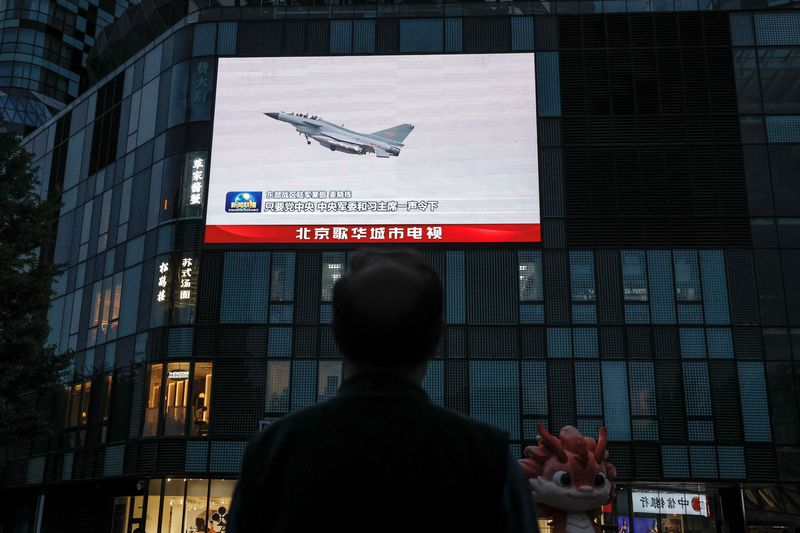By Michael Martina, David Brunnstrom and Trevor Hunnicutt
WASHINGTON (Reuters) - China has no justification for using an annual national day speech by Taiwan as a pretext for military pressure, the United States said on Wednesday, ahead of scheduled remarks by the island's president that Taiwan officials say Beijing is likely to follow with military drills.
China has been using every possible means to cause "chaos", a Taiwan source said ahead of President Lai Ching-te's keynote address on Thursday, describing the context around it.
A senior U.S. administration official told reporters the Oct. 10 speech marking the 113th birthday of the Republic of China, Taiwan's official name, was no cause for Chinese military exercises.
"Even though we have not seen significant military activity or exercises following previous 10/10 speeches, we are prepared that Beijing may choose to use this as a pretext this year," the senior official said.
"Again, we see no justification for a routine annual celebration to be used in this manner. Coercive actions like this against Taiwan and in the cross-Strait context, in our view, undermine cross-Strait stability," the official said.
China staged "punishment" war games around Taiwan shortly after Lai's May inauguration but has not announced any new Taiwan-related military drills. The Chinese embassy in Washington did not immediately respond to a request for comment.
The U.S. official said Taiwan had briefed diplomatic partners on Lai's speech, but that the content of his remarks were "entirely up to Taiwan officials."
Lai, who took office in May after winning election in January, is detested by China which calls him a "separatist". Beijing claims Taiwan as its own territory, a view Lai and his government reject.
China's military has significantly ramped up its activities around Taiwan in recent years and has never renounced the use of force to bring the island under its control.
National day in Taiwan marks the overthrow of the last Chinese dynasty in 1911 and the ushering in of the Republic of China. The defeated republican government fled to Taiwan in 1949 after losing a civil war with Mao Zedong's communists. No peace treaty or armistice has ever been signed, and Beijing has never renounced the use of force to bring Taiwan under its control.
Most Taiwanese believe China is unlikely to invade in the coming five years but do see Beijing as a serious threat to the island, a poll by Taiwan's top military think tank showed on Wednesday.
The U.S. and China had discussed in late August holding fresh talks between presidents Joe Biden and Xi Jinping, as both countries have sought to maintain stability in difficult bilateral relations.

The U.S. official did not offer new details on when such a leaders call might occur, and said it had been "tough to schedule" due to holidays and domestic issues in both countries.
(This story has been officially corrected following the source's clarification of the characterization of the speech in paragraph 2)
